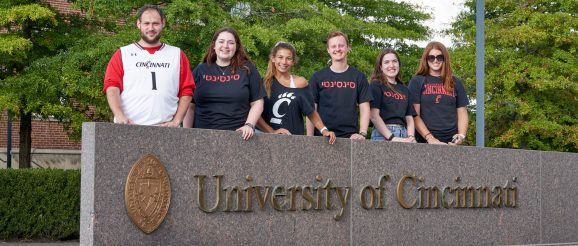Incubating Ideas: New One-Time Funding to Spark Innovation in Jewish Cincinnati | Jewish Cincinnati News

Danielle V. Minson — Raising the Bar
0 Comments
Incubating Ideas: New One-Time Funding to Spark Innovation in Jewish Cincinnati
“A lot of people are going to see the impact of this money,” said Elida Kamine, Vice President of the Jewish Federation of Cincinnati’s Planning and Allocations Committee. “Through this new Special Projects Fund, we’ve been able to provide special one-time funding to a really amazing cross-section of our Jewish community.”
The Jewish Federation of Cincinnati created the Special Projects Fund to support the launch of Cincinnati 2030 (C2030), the Cincinnati Jewish community’s new strategic plan which aspires to empower everyone to choose their own manner of engagement in, and expression of, Jewish communal life. Its goal is to enable more Jews and their families to feel a sense of belonging, and to have a meaningful, purpose-filled life.
“The Special Projects Fund is really in alignment with C2030,” said Kamine. “We wanted to see the things our community agencies are hoping to accomplish over the next several years and help kick-start those plans and growth. The Federation played a critical role during the pandemic of agency stabilization and emergency relief, and as a result, our agencies are in a good position to pivot to the future-looking, growth-oriented opportunities with a little seed funding from the Special Projects Fund.”
The Jewish Federation received 47 applications from 31 different agencies, and ultimately provided $263,000 across 15 agencies to fund 19 new programs. “It organically ended up being really diverse in terms of the scope of the agencies that were funded,” said Kamine. “There are Shabbat oriented programs, engagement focused programs, Israel programs, cohort programs for pre-teens and young adults, program area capital investments, and grants focused on technology.”
“Since 2020, a lot of agencies in our community have tried new programming to engage people differently, and are doing a lot of really exciting work,” said Alana Goldstein, who manages the Federation’s Planning and Allocations process. “With the Special Projects Fund, we wanted to include agencies who don’t currently receive funding and national organizations as well.”
The funding is split evenly between synagogues, agencies that are currently receiving Federation funding, and agencies new to the Federation. “This also acts as a kind of trial run for these new agencies,” said Goldstein. “We get to find out more about each other, and hopefully they become part of our regular Planning and Allocations process. The same for organizations we’re already funding. If this one-time program is successful, maybe we can fold that into their annual funding.”
Federation CEO Danielle V. Minson said the Special Projects Fund gives Jewish agencies a chance to stretch and be creative and find new ways to engage with the community. “There’s a lot of energy from our agencies and how they connect with our community’s C2030 common goals and strategic vision,” said Minson. “There are a lot of creative ideas about how to improve engagement and meet people where they are geographically to engage new demographics who haven’t been engaged, and grow programs to make them even better.”
In addition to providing funding for new ideas and initiatives, the Special Projects Fund also provided an opportunity for volunteer leadership. “We were able to engage our super volunteers and our experts in new and exciting ways,” said Minson. “The people who were tapped for this are all current and past veterans of our traditional Planning and Allocations process–people with a lot of planning and allocations experience–and a diverse background in terms of their knowledge of the community and community involvement.”
Everyone involved with the Special Projects Fund has said there is a buzz of excitement in the community. “I got one really great phone call from an agency who we had never funded before who was really excited for the opportunity,” said Goldstein. “For new agencies or smaller agencies, receiving Federation funding makes them feel accepted by the community, and that their work is being recognized.”
“Our agencies are really creative and forward thinking,” added Kamine. “They understand the issues and needs and want to do more to incubate new ideas and continue to support and identify opportunities for the community. There’s going to be some new innovation in the community as a result of this, across a broad cross-section of our community.”
Thanks for caring about our community and what we do.
